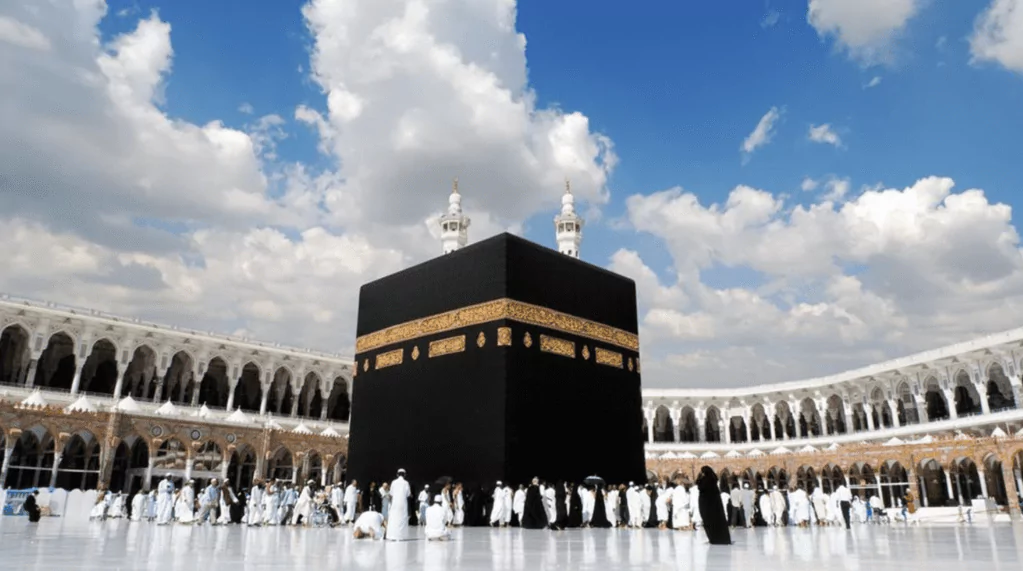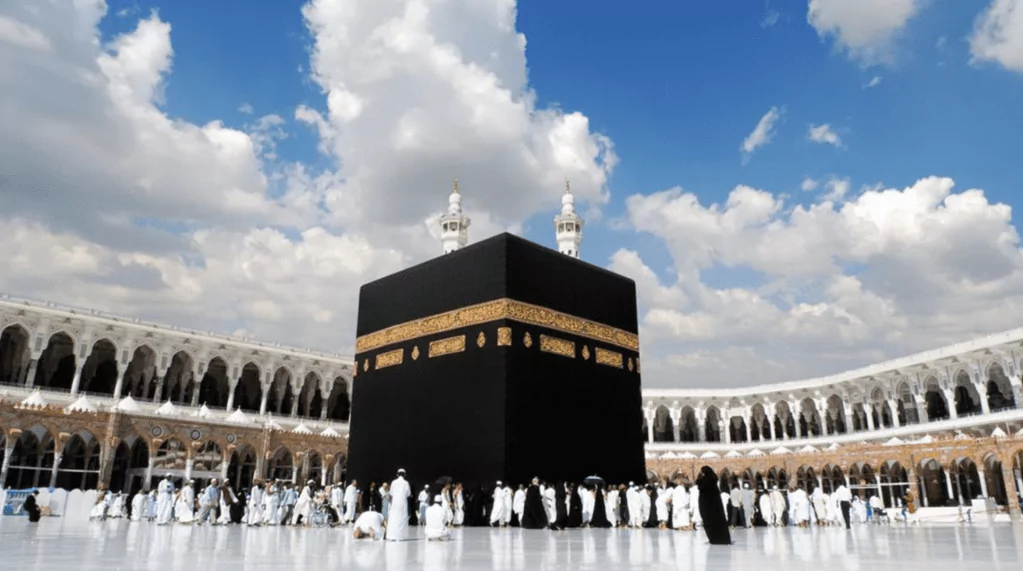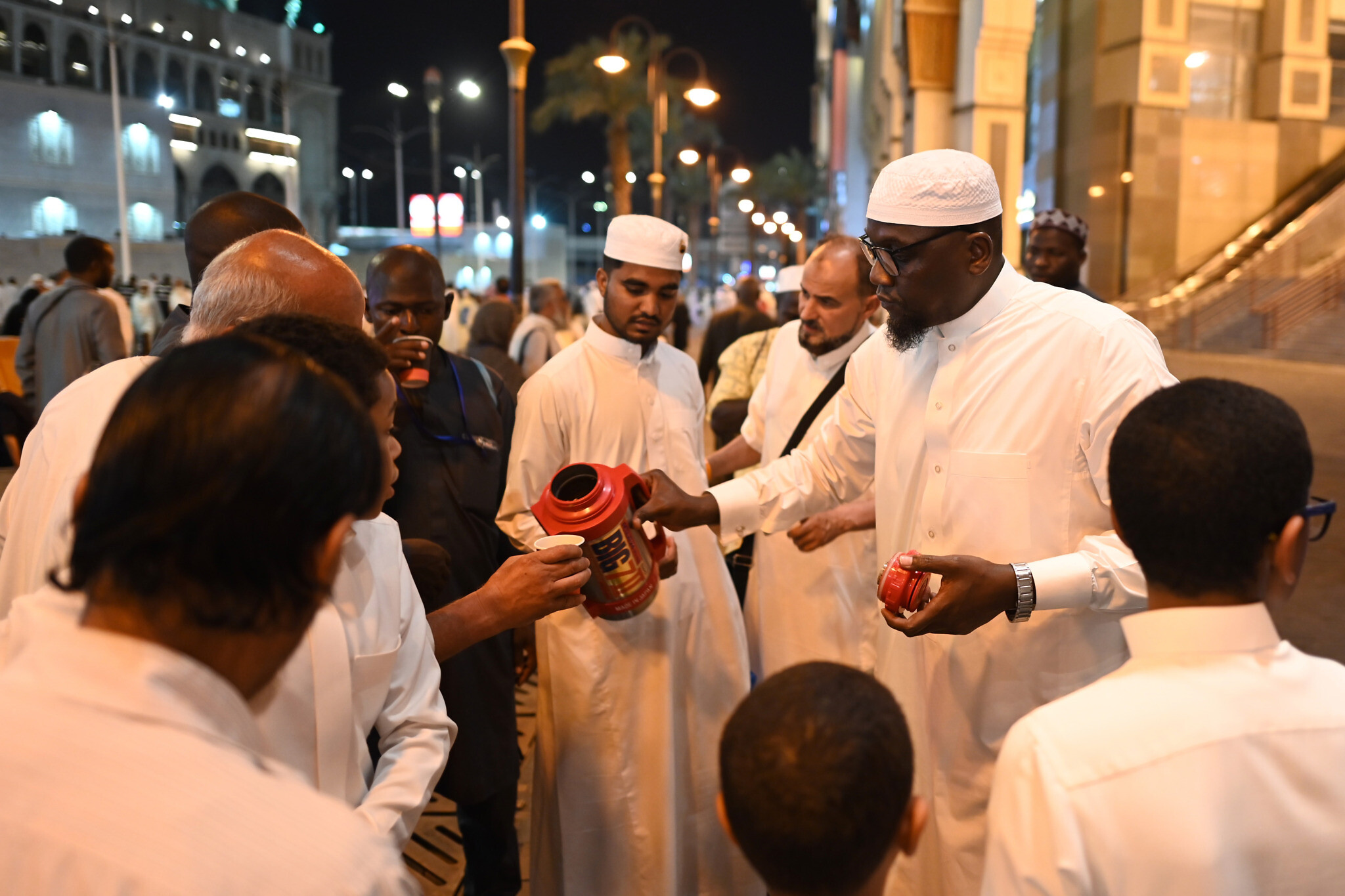Table of Contents
Umrah In the realm of Islamic pilgrimage, Umrah holds a special place as a profound spiritual journey undertaken by millions of Muslims each year. Unlike the obligatory Hajj, Umrah is a voluntary pilgrimage that carries immense significance and rewards for believers. Let’s delve into the essence of Umrah, exploring its rituals, symbolism, and the transformative experience it offers to pilgrims seeking closeness to the divine.

Understanding Umrah
Umrah is a sacred pilgrimage to the holy city of Mecca, Saudi Arabia, performed at any time of the year, unlike the Hajj, which has specific dates according to the Islamic lunar calendar. While Hajj is one of the Five Pillars of Islam and mandatory for every able-bodied Muslim who can afford it, is considered a Sunnah, a voluntary act of devotion that holds immense spiritual significance.
The Rituals of Umrah
The Umrah pilgrimage consists of several rituals, each imbued with symbolism and meaning. The journey begins with the state of ihram, a state of ritual purity entered by donning two white garments for men and modest attire for women. Pilgrims then proceed to the Kaaba, the sacred house of worship at the center of the Masjid al-Haram, where they perform the tawaf, circumambulating the Kaaba seven times while reciting prayers and supplications.
The Spiritual Significance of Umrah
Umrah holds deep spiritual significance for Muslims, representing a journey of purification, repentance, and renewal of faith. Pilgrims undertake the pilgrimage with the intention of seeking forgiveness for their sins, supplicating to Allah for blessings and guidance, and drawing closer to the divine presence. Through the physical acts of devotion and the spiritual intentions behind them, becomes a transformative experience that enriches the soul and strengthens the bond between the pilgrim and their Creator.
The Essence of Umrah
A Journey of Sacrifice and Submission
Umrah embodies the principles of sacrifice and submission to the will of Allah. Pilgrims leave behind their comforts, worldly responsibilities, and distractions to embark on this spiritual journey, surrendering themselves entirely to the divine purpose. The physical rigors of the pilgrimage, from the long journey to Mecca to the rigorous rituals performed in the heat of the desert, serve as reminders of the sacrifices made in the path of faith.
A Symbol of Unity and Equality
Umrah transcends boundaries of race, nationality, and social status, uniting Muslims from diverse backgrounds in a shared expression of faith and devotion. Regardless of their wealth or social standing, all pilgrims don the simple garments of ihram and stand as equals before Allah, emphasizing the principles of brotherhood and equality in Islam. In the sacred precincts of the Kaaba, pilgrims from every corner of the globe come together in unity, harmony, and reverence for the One God.
A Source of Spiritual Rejuvenation
For many pilgrims,is a transformative journey that brings about spiritual rejuvenation, inner peace, and a sense of purpose. The experience of performing the rituals, engaging in prayer and reflection, and witnessing the sacred sites of Mecca leaves a profound impact on the hearts and minds of pilgrims, instilling in them a renewed sense of faith, humility, and gratitude. Long after returning from Umrah, pilgrims carry with them the spiritual blessings and insights gained during their pilgrimage, guiding them on their journey of faith and devotion.
The Rewards of Umrah
Spiritual Rewards and Blessings
Umrah is believed to carry immense spiritual rewards and blessings for those who undertake it with sincerity and devotion. According to Islamic teachings, performing earns forgiveness for past sins, elevates the status of the pilgrim in the sight of Allah, and brings about spiritual purification and enlightenment. The Prophet Muhammad is reported to have said, “Follow up between Hajj and Umrah, for certainly they both eliminate poverty and sins as fire eliminates impurities.”
The Fulfillment of a Sacred Duty
While Umrah is not obligatory like the Hajj, it is regarded as a virtuous act of worship that brings the pilgrim closer to Allah and fulfills a Sunnah of the Prophet Muhammad. By undertaking, Muslims demonstrate their love, devotion, and obedience to Allah, following in the footsteps of the Prophet and the righteous predecessors who journeyed to the holy city of Mecca to worship and seek divine mercy.
The Experience of a Lifetime
Beyond its spiritual rewards, Umrah offers pilgrims the experience of a lifetime, filled with moments of awe, reverence, and profound spiritual connection. From the first glimpse of the Kaaba to the solemn prayers at the Mount of Mercy, every aspect of the pilgrimage is imbued with significance and symbolism, leaving a lasting impression on the hearts and souls of those who undertake it. For many pilgrims, is not just a journey to a sacred place but a transformative experience that shapes their lives and deepens their faith.
Umrah
As Muslims around the world embark on the spiritual journey of Umrah, they embrace a path of devotion, sacrifice, and spiritual renewal. From the rituals performed in the sacred precincts of Mecca to the profound moments of reflection and supplication, offers pilgrims an opportunity to draw closer to Allah, seek forgiveness for their sins, and experience the transformative power of faith. As pilgrims return from Umrah, they carry with them the blessings, insights, and spiritual rejuvenation gained during their pilgrimage, inspiring them to lead lives of piety, humility, and gratitude.






More Stories
Umrah Insights: Reflections from Pilgrims on the Spiritual Path
Beyond Obligation: Finding Inspiration in the Experience of Umrah
In the Footsteps of Prophet Muhammad: Embracing Umrah Traditions